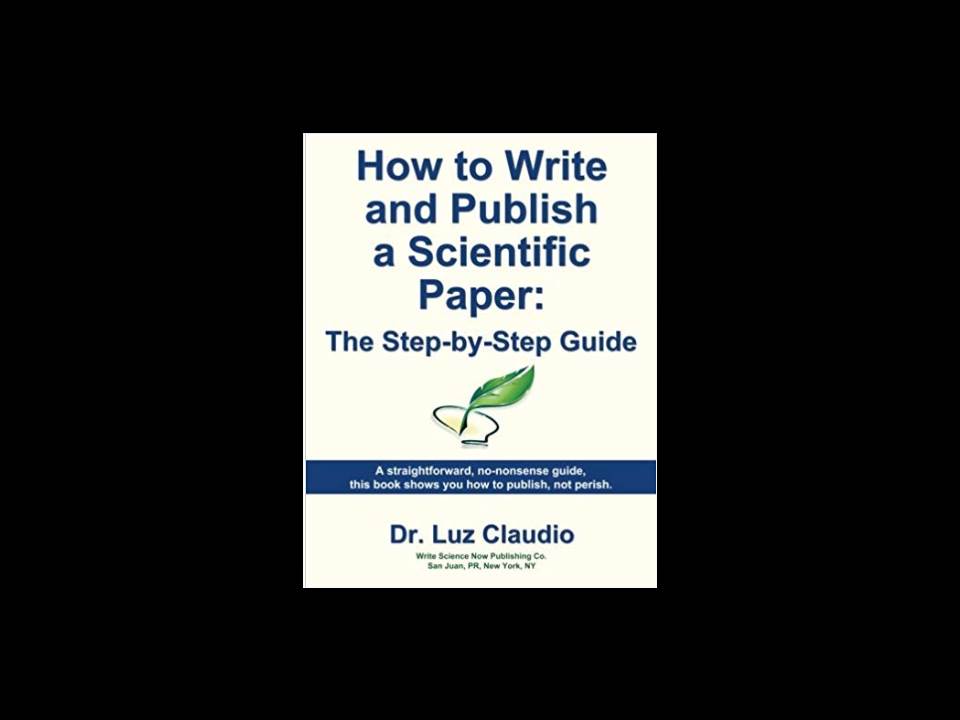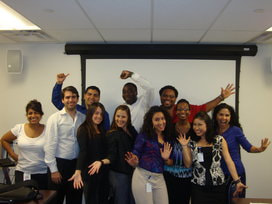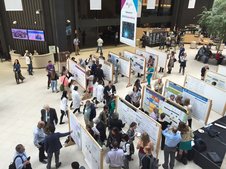|
In this article, my book was described as follows:
This workbook was designed to get scientists writing their research articles and publishing in peer-reviewed journals. With this workbook, scientists will actually write as they read. Each easy-to-read chapter teaches what you need to know to succeed in writing research papers. At the end of each chapter, there is a summary of the important points for future reference. For each skill you learn in each chapter, the workbook has fill-in exercises that will lead scientists to write a draft of your research article. By the end of the book, you will have completed your scientific article. No other book guides you through the process of writing and publishing scientific papers in such a clear, practical and doable manner. It is like having a mentor dedicated to helping you publish fast. This book will be your reference guide for years to come as you advance from student to independent researcher to professor. The fill-in forms can be downloaded at www.drluzclaudio.com for personal use or as part of a teaching curriculum. This book was written by a very successful woman scientist for scientists. Here is the complete list of books recommended for women in science: #1 Health Tips, Myths And Tricks: A Physician’s Advice #2 Snake Oil is Alive and Well By Morton E. Tavel #3 Silent Spring by Rachel Carson #4 The One-Minute Gratitude Journal by One Minute Journals #5 How to Write and Publish a Scientific Paper by Dr. Luz Claudio #6 The Book of Awesome Women by Becca Anderson #7 The Feminist Financial Handbook by Brynne Conroy
2 Comments
"Should I go to grad school?" is one of those questions that students ask me, often. Many of them ask this question while they are ALREADY in graduate school! This tells me that much more needs to be done to help students make these important decisions about their education. This is especially important at this time, when the student loan debt in the US has been described as a "$1.5 Trillion crisis".
I was recently interviewed by Ilana Kowarski for an article on U.S. News and World Report about the differences between college and graduate school. In it, I was quoted as follows: "Luz Claudio, a tenured professor with the Icahn School of Medicine at Mount Sinai in New York, says graduate school typically requires an abundance of motivation and personal accountability, since students are frequently asked to work independently."I tell college students that one of the keys to success in graduate school is self-discipline," Claudio wrote in an email. "There's generally no 'homework,' quizzes and few exams. Students need to learn how to learn class materials without such close guidance from a teacher. However, most graduate programs have a long-term project that students must complete, such as a research paper. These require a different kind of relationship with a teacher. For these, the teacher becomes more like a mentor and the student is more like an apprentice." Other educators in different fields from educational institutions from across the United States were also cited in the article. One, for example, was Thomas Plante, a professor of psychology at Santa Clara University in California. He said: "Too often, college students or people who only have had a college experience somehow think that graduate school is going to be more of the same, and it's not,". Many of my students aim to get into medical school. I hope that they also want to succeed in becoming caring, inquisitive, and knowledgeable doctors. One common question they ask is: What GPA do I need to get into medical school?
In an article for US News and World Report, reporter Ilana Kowarski interviewed me and others about this question. In general, most other experts included in the article and I agree that students should aim for a GPA of at least 3.5. In fact, for my NIH-funded internship programs, I am not even allowed to take students with GPAs below 3.0. In the article, I was quoted as follows: "Dr. Luz Claudio, a tenured professor with the Icahn School of Medicine at Mount Sinai and the author of "How to Write and Publish a Scientific Paper: The Step-by-Step Guide," warns that signing up for easy A college classes isn't the best strategy for improving your odds of admission. "I see that students sometimes take relatively easy courses to raise their overall GPA, but if their science grades are still low, this may not help them enter med school," she wrote in an email. "Another thing that students wanting to go to medical school may consider is doing medical research internships, especially if those lead to publication in good peer-reviewed research journals," Claudio says. "Published papers coupled with spectacular letters of recommendations and excellent MCAT scores can sometimes propel a student who is on the borderline to get into medical school." To read the full article published on October 2, 2018, please click below. Last school year, I reviewed over 600 applications from students to my training programs. Over SIX HUNDRED, for 16 research internship positions that I had available!
One of the most important skills that we look for in students is STATISTICS. Students who are proficient in statistics can apply those skills to almost any kind of internship project, from community-based research, to cell biology. In an article titled Six Classes and Certifications That Can Help You Get a Raise, by Joanna Hughes for MasterStudies.com. I was quoted as follows: "We already addressed how actuary certification can be a major career booster for actuaries. But the study of statistics has general -- and lucrative -- applications, as well. Professor of preventive medicine Luz Claudio told Monster.com, “I know it may sound boring to some, but statistics can be applied in so many fields: biomedical research, business, economics, social sciences and computer sciences. If you don’t know what you want to be when you grow up, but you are proficient in statistics, you can get a job in almost any field until you find a path that better suits your passions.” So, if you are a student starting a new semester in the fall, think about taking courses in statistics. Talk to your advisers and mentors about how statistics may fit your curriculum of study. You will find that this knowledge will open many doors for you. Click to download the CHECKLIST FOR MEETING WITH A MENTOR and other free resources for students. Dr. Luz Claudio is a Tenured Professor of Environmental Medicine and Public Health and the author of How to Write and Publish a Scientific Paper: The Step-by-Step Guide, the Spanish edition: Cómo Escribir y Publicar un Artículo Científico: La Guía Paso a Paso, and the New Notebook for Seminars and Lectures.These books and free resources can be found on Amazon and at www.DrLuzClaudio.com. The opinions expressed in this blog are solely her own and may not reflect those of her employer or colleagues. In this article, we give advice on how to prepare for a job interview.
“My advice is to at least Google the person who will interview you, the institution, their work, the market. Find some information in advance,” says Dr. Luz Claudio, who directs the Division of International Health at Icahn School of Medicine at Mount Sinai in New York City. In addition to advising undergraduate and graduate students on interviewing, Dr. Claudio interviews about 70 applicants per year and he’s reviewed more than 400 resumes. “When the person asks: ‘Do you have any questions for me?’ take out your notes and ask some specific questions about what they do. This shows your interest,” she says. “It shows that you did some homework and preparation prior to the interview and that you took initiative in searching for additional information.” Public School Review: Why Students and Schools Benefit from Foreign Language Programs. Foreign language skills are critically important for opening the door of possibility to have a great learning experience in another country.
“Students can get the most out of their time as an intern by creating a plan with their internship mentor to achieve something tangible by the end of their time as interns.” She stressed the importance of creating concrete results that can be leveraged in future job applications and on your resume.
Dr. Luz Claudio, author of How to Write and Publish a Scientific Paper is a professor at Icahn School of Medicine at Mount Sinai. She said, "I think that the most successful students in international programs have one thing in common: They have a curious and open mind. She further described some of the key characteristics needed to succeed in international educational experiences.
The men and women getting off the plane looked like an army of ancient soldiers marching into the battle, only instead of spears or quivers of arrows each weary traveler carried a thin brown or black tube slung across their shoulders. As we all marched down the hall toward baggage claim, I turned to one of them. “What’s with all of the tubes,” I asked. “They’re too small for golf clubs.” He smiled and filled me in. “We’re all presenting posters at a conference this weekend,” he said.
Certain companies involve interns in high-profile projects, but that’s not always the case. Whether you liked it or not, chances are you got stuck doing a bunch of grunt work when you were an intern. Let’s just hope you didn’t get used to it!
In contrast to being an intern or a student, full-time employees—even entry-level ones—are expected to do more than just follow orders. “At permanent positions, you’re expected to have more than a superficial understanding of the work topic and be a bit more independent,” says Luz Claudio, professor and chief of the Division of International Health at Mount Sinai School of Medicine in New York City. Claudio knew that she wanted to work at the intersection of public-health research and policy. Today, as head of the division of international health at Mount Sinai School of Medicine in New York City, Claudio has won renown for her work on asthma in low-income communities. She credits her relationship with the committee member: “That experience changed my life.”
“One measure of success for professors is the success of their students,” says Claudio. JobWatch: Training the Next Generation of Ph.D.'s By Alex Philippidis/ GEN, GEN Exclusives3/23/2016 As a result of this project, we will train over 180 people to develop team skills to understand, select and use genomics data tools and approaches,” Kovatch and colleagues Luz Claudio, Ph.D., professor of preventive medicine, and Andrew Sharp, Ph.D., senior faculty member and associate professor of genetics and genomic sciences, stated in an abstract of their grant proposal. The course will be offered online via Coursera, they added.."
|
This section will not be visible in live published website. Below are your current settings: Current Number Of Columns are = 1 Expand Posts Area = 1 Gap/Space Between Posts = 10px Blog Post Style = simple Use of custom card colors instead of default colors = 1 Blog Post Card Background Color = current color Blog Post Card Shadow Color = current color Blog Post Card Border Color = current color Publish the website and visit your blog page to see the results Categories
All
Archives
April 2024
|
|
Dr. Luz Claudio
[email protected] |
|

















 RSS Feed
RSS Feed